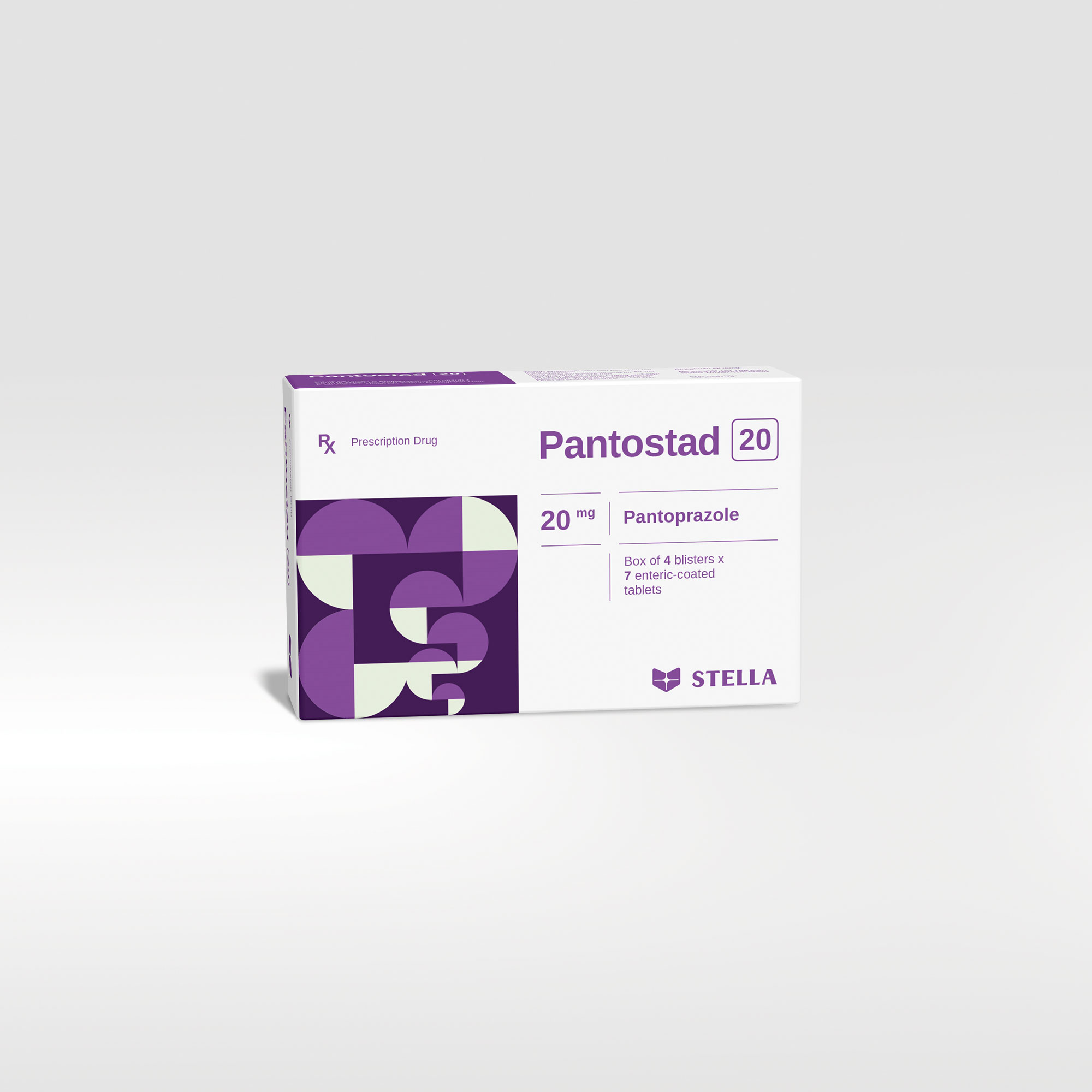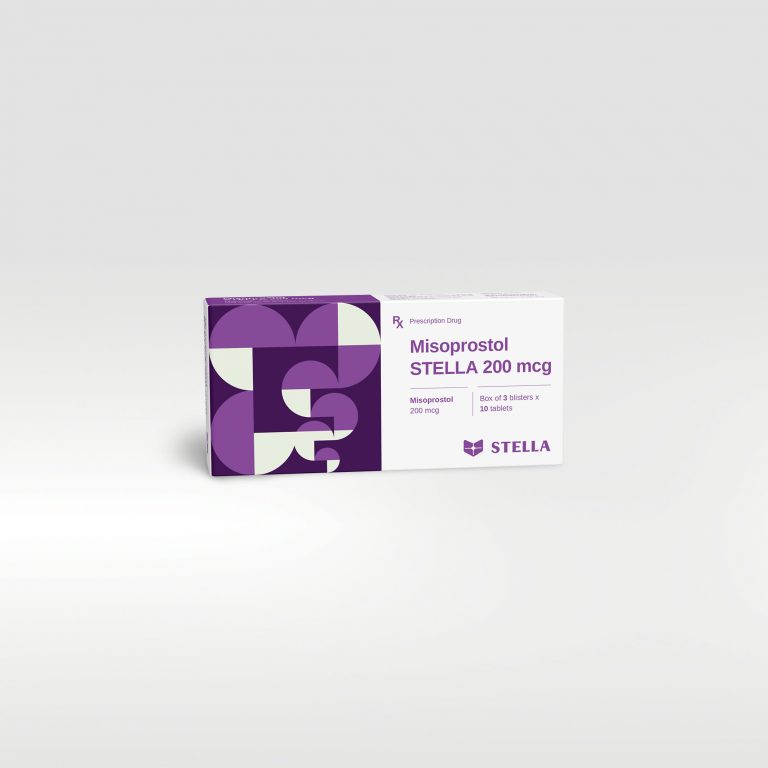Pantostad 20 Rx
Pantoprazole is a proton pump inhibitor (PPI) that suppresses the final step in gastric acid production.
| Pack size | Box of 14 tablets, 28 tablets, 30 tablets, 50 tablets |
| Shelf-life | 36 months |
| Composition | Pantoprazole |
| Dosage forms and strengths | Enteric-coated tablet 20 mg |
Product code :









